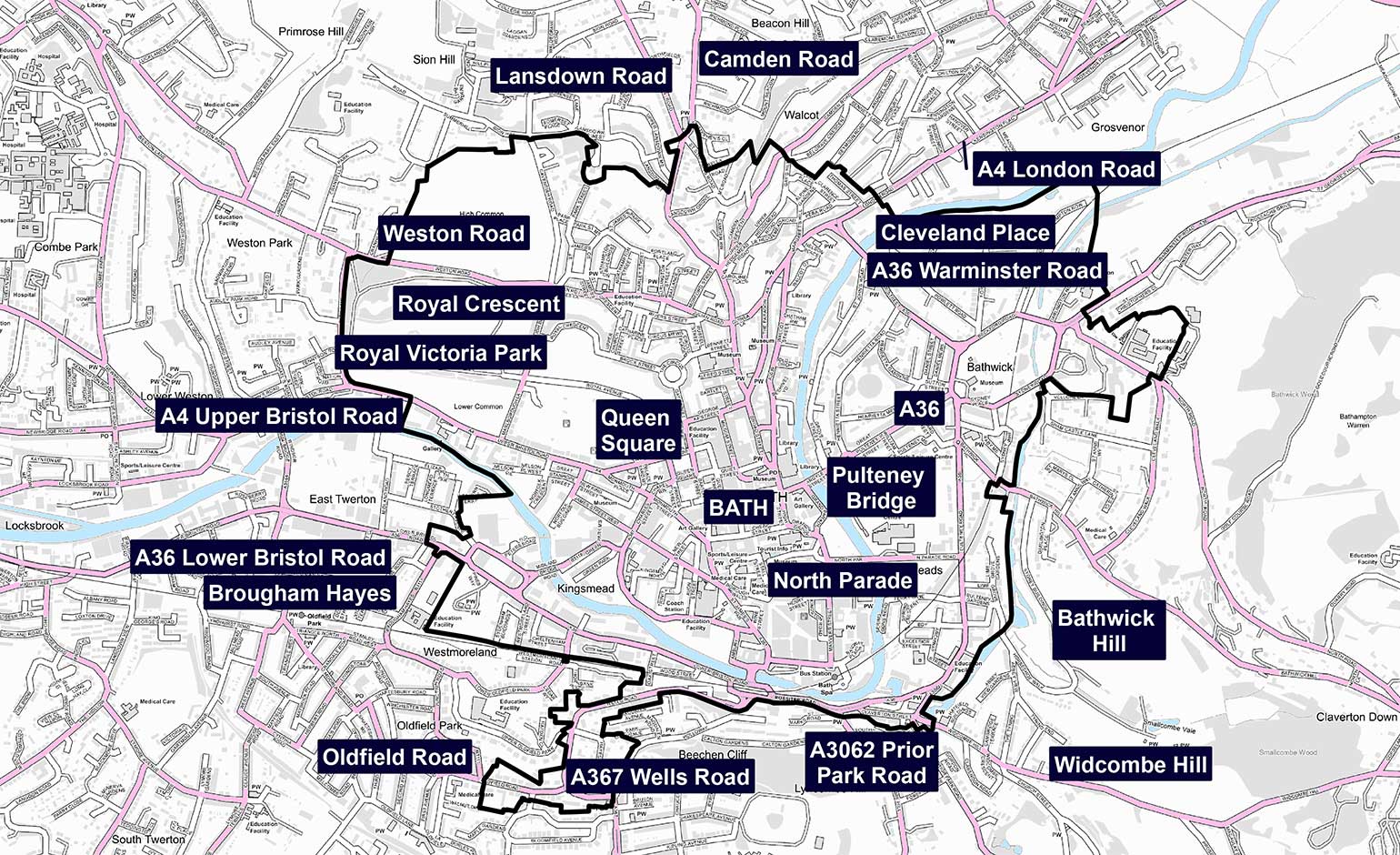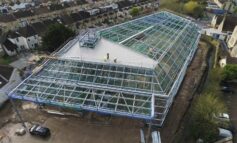Residents and businesses in Bath are being thanked by leaders at Bath & North East Somerset Council for supporting the city’s clean air zone, as it marks its first anniversary.

The boundary of Bath’s clean air zone
On 15th March 2021, Bath launched the first charging clean air zone outside of London to help reduce the high levels of nitrogen dioxide (NO2) polluting the city centre.
The local authority has said that the class C zone, which does not charge cars, is “working well” to change behaviours and improve local air quality.
More than 90% of HGVs, coaches, buses and taxis entering the zone are now compliant with the city’s minimum emission standards, which means they don’t need to pay.
Van compliance rates have also improved, rising from 60% during the first month of the zone’s operation to more than 80% compliance.
Around 41,000 unique vehicles travel in the zone every day. Most of these are private cars, but around 5,300 (13 percent) are buses, taxis, vans or HGVs that only pay in the zone if they don’t comply with emission charges.
An even smaller percentage have to pay, and this figure has halved since launch from 4.5 percent of all vehicles having to pay, to just 1.5 percent (just over 600 vehicles) by February 2022.
The annual report on Bath’s CAZ will not be published until July 2022 following analysis of the results by central government.
However, available data from the first half of the year suggests that NO2 pollution across Bath, not just within the zone, fell by 14% compared with the same period in 2019.
This is despite traffic returning to normal and, at times, above historic levels as pandemic restrictions eased.
Bath & North East Somerset Council has offered a financial assistance scheme to help replace the city’s most polluting, chargeable vehicles with cleaner ones.
Figures show 1,500 vehicles were approved for grants and interest free finance, 800 vehicles have so far been replaced using these funds, and 200 more replacements are currently on order.
Local business owners and residents with compliant vehicles on order are currently exempt from charges.
Councillor Sarah Warren, deputy leader and cabinet member for Climate and Sustainable Travel, said: “On the anniversary of Bath’s Clean Air Zone, we want to celebrate where we are in this journey, and say thank you to people for their support.
“This includes bus, freight and logistic companies, local business and taxi drivers who applied for funds to replace polluting vehicles.
“We also want to thank residents who are consciously limiting short car journeys through the city, despite cars not being charged in the zone.
“The signs of improvement we see are heartening and important. Adapting to the zone has been hard, but we’re proud of the way that the city has got behind it.
“We’re not out of the woods yet – there is still room for improvement – but we’re definitely moving in the right direction.”
Nitrogen dioxide is extremely toxic and contributes to fatal asthma attacks. It makes respiratory and heart problems worse, and is associated with reduced lung development in children.
A recent study has also suggested that falling air pollution may help to fend off conditions such as dementia.
Since its launch, the zone has generated £5.3million in revenue. The income is being used to cover initial investment and future operating costs.
Once these are sufficiently funded, any surplus income would be allocated to support the council’s sustainable transport initiatives.



